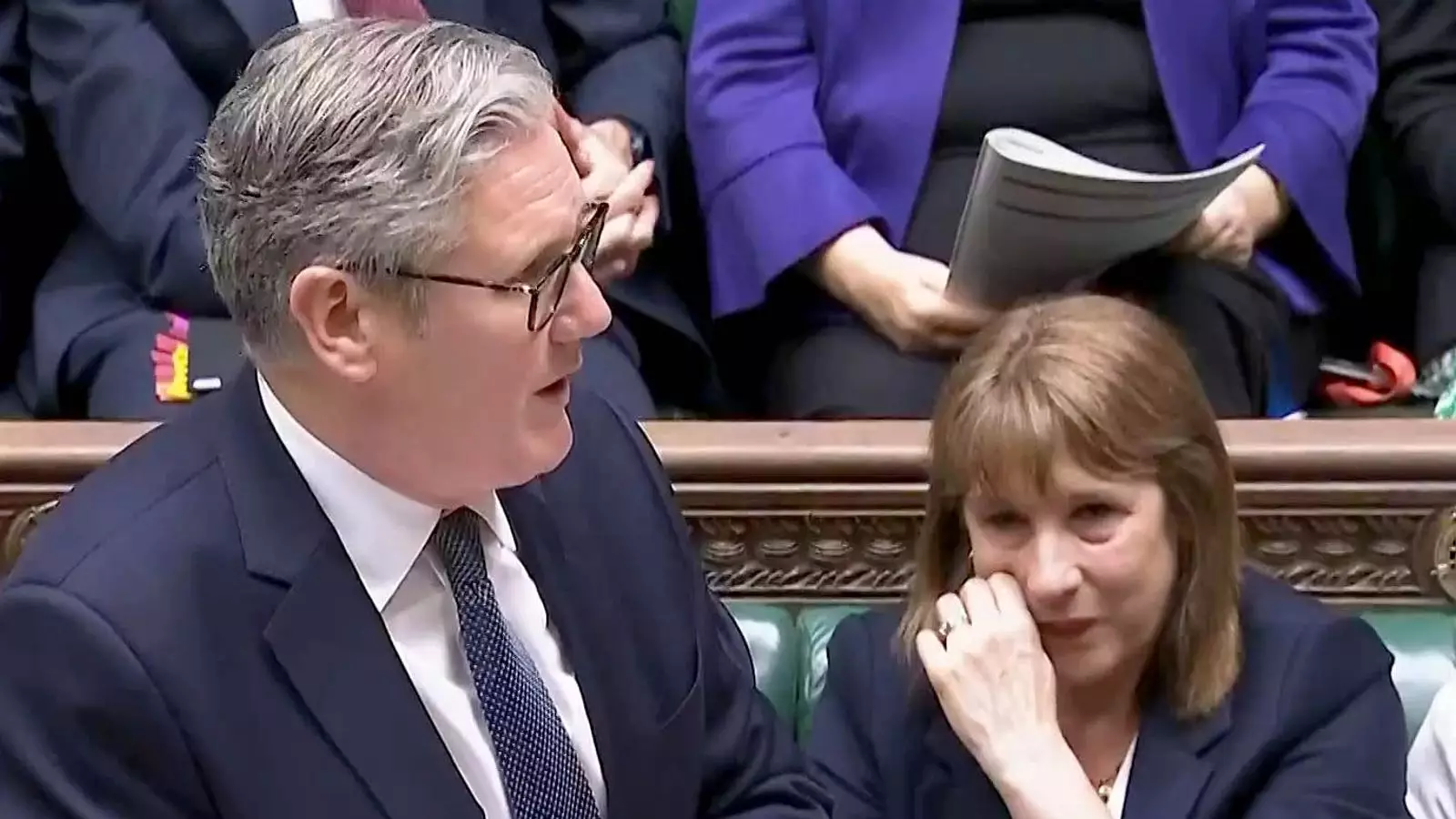In the current political climate, leadership stability in the UK is increasingly questioned, reflecting a landscape marked by escalating discontent, strategic vulnerabilities, and unpredictable public sentiment. While Prime Minister Rishi Sunak seeks to project confidence, beneath the surface lie fractures that threaten to destabilize his government’s grip on power. The whispering voices of dissatisfaction are growing louder, hinting at a possible upheaval should the government’s strategies and electoral prospects fail to improve. This internal discord underscores a vital truth: political capital is remarkably fragile, especially when key figures face mounting pressure from within and outside their ranks.
Sunak’s commitment to his closest allies, especially Chancellor Rachel Reeves, appears unwavering publicly, yet speculation persists about the true state of morale within the corridors of Whitehall. The recent tumult surrounding economic policies, including U-turns and financial shortfalls, exemplifies a government struggling to maintain coherence and public trust. Such turbulence is often a precursor to leadership challenges, and in Westminster’s cutthroat environment, promises of stability can quickly erode when electoral prospects dim or when internal factions question the direction of leadership.
Meanwhile, Labour’s leadership remains mired in scrutiny. Sir Keir Starmer’s apparent vulnerability appears to hinge substantially on electoral forecasts and party confidence, with insiders warning that a poor showing in upcoming May elections could spell the end for him as leader. These rumors are not idle; they are rooted in a difficult reality that the opposition might be losing ground in critical regions, threatening to undercut Starmer’s aspirations for national governance. A sense of precarity hangs over Labour’s top echelon, reminding us that political fortunes are often decided by the narrowest margins—one bad election cycle can devastate years of strategic planning.
Polling Chaos and the Threat of Rising Alternatives
The political spectrum’s shifting sands mean that traditional party loyalties are more volatile than ever. Reform UK’s surging support in Wales, combined with the growth of left-wing parties such as the Greens in London, indicates a fragmentation that complicates both Labour and Conservative strategies. These emerging threats reveal the public’s hunger for alternatives and a dissatisfaction with the status quo—a sentiment that can quickly convert into electoral volatility. The government’s inability to stem this tide signifies a deeper disconnect with the electorate, further fueling the sense that leadership must demonstrate resilience and adaptability or face swift disfavor.
The media’s narrative adds fuel to this fire, particularly with coverage highlighting internal tensions and public dissatisfaction. Prime Minister Sunak’s steadfast backing for Rachel Reeves, despite visible emotional distress, suggests a government attempting to project unity amid chaos. Yet, the optics are stark: a leader publicly defending a colleague’s personal struggles while economic indicators spiral downward reflects a fragile veneer of control. Such scenes reinforce the perception that political leadership is more about managing appearances than addressing underlying issues effectively.
Furthermore, the recent welfare bill controversy illustrates how internal disagreements and policy U-turns can accelerate internal dissent. The revelation of a £5bn black hole, born from U-turns and political compromises, exposes vulnerabilities that opposition parties can exploit. It underscores the reality that governance is as much about navigating political peril as it is about executing policy. When the financial foundation appears shaky, opposition figures gain ammunition, heightening fears among leadership that their grip on power may be slipping.
The Personal and Political: An Unraveling Thread
At the heart of this turmoil lies a complex interplay between personal vulnerability and political strategy. Rachel Reeves’s visible distress during Prime Minister’s Questions may symbolize a broader emotional toll faced by leaders who are navigating turbulent waters. While Sunak dismisses it as a personal matter, such moments resonate with the public and party members alike, as they reflect the immense pressures faced by those at the pinnacle of power.
What is particularly troubling for Sunak and his team is the apparent divergence between public declarations of confidence and the undercurrents of doubt circulating within political circles. The unwavering rhetoric about Reeves’s long-term role, amid mounting financial crises and electoral challenges, appears increasingly disconnected from the reality of political fragility. Leaders often cling to narratives of stability, but in a rapidly changing political environment, such narratives risk being perceived as out of touch or even dismissive of genuine concerns.
The broader political landscape suggests that the UK’s leadership is at a crossroads: either they will adapt and stabilize amidst increasing turbulence or become victims of their entrenched vulnerabilities. The current stakes are high, and the outcomes remain uncertain, but one truth is clear—leadership, in this climate, is a game of resilience, perception, and the relentless pressure of public scrutiny.


Leave a Reply